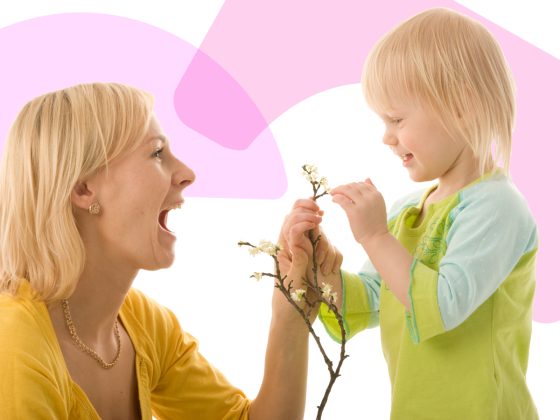
The Language of Science
Help kids talk about science—and build vocabulary.
Science means observing, questioning, investigating, analyzing, reporting, and reflecting. Here’s a look at each part of this process, and how grown-ups can help kids understand science by using language.
Observe
Kids seem to notice everything around them. They observe and explore in an open-ended and self-guided way. Their explorations spark curiosity, and their curiosity sparks questions. Talk with kids about things that make them feel curious.
Question
Kids ask questions about the things that interest them. They ask, “Why does this happen?” and “Where did that come from?” They make statements like: “I wonder…” and “What if?” These types of questions spark science investigations. Encourage asking, “Who?” “What?” “When?” “Where?” and “Why?” questions.
Investigate
Kids naturally experiment and test things out to find answers. They might drop several balls to learn which is the bounciest, or drop objects down a slide to see which gets to the bottom first. Encourage them to collect data about what they discover by writing or drawing what they see.
Analyze & Report
After experimenting, kids can think about what happened and begin to make sense of it: “I saw that the smallest ball bounced the most times.” We can help them state conclusions, make inferences, and draw comparisons by helping them use language to explain their process: “At first I thought… But now I know… Because…”
Reflect
Kids usually share fun discoveries with others. They think about their actions and experiences. We can help them use language to reflect on what happened and why it happened. As they reflect, their learning becomes more meaningful and the big idea becomes clearer.
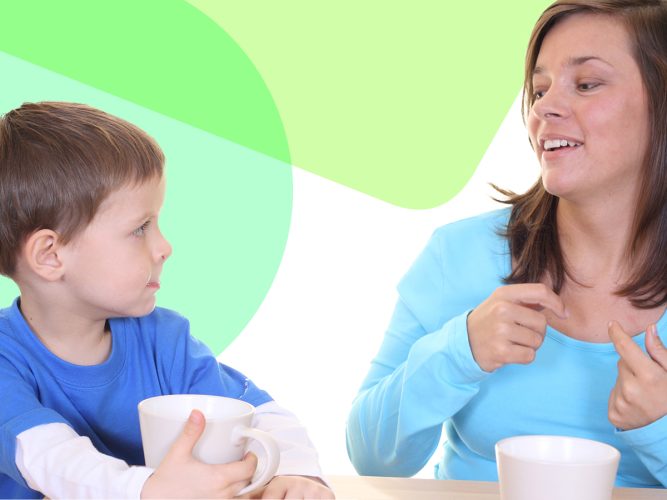
Questions, Questions!
An article about using children’s questions as a springboard into playful learning.
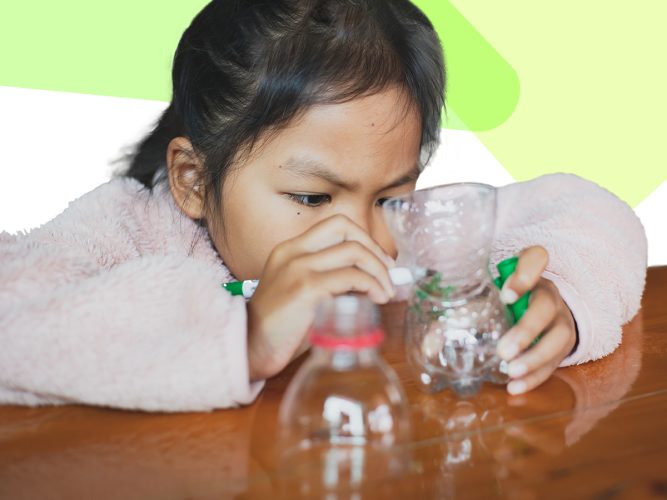
Upcycling Crafts
An article about upcycling projects.
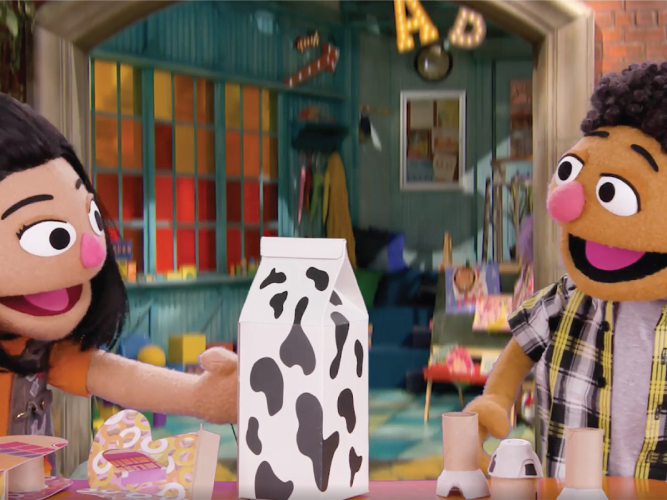
Ji-Young and Tamir Build a Robo-plane
A video about teamwork and sharing.
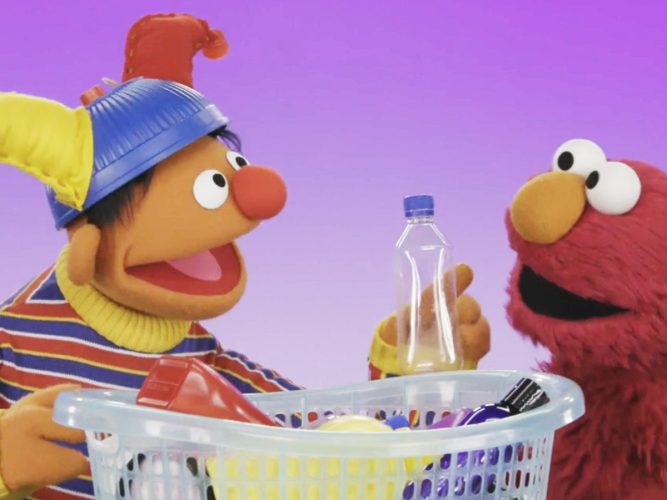
Reuse!
Ernie shows Elmo ways to turn a used water bottle into art.
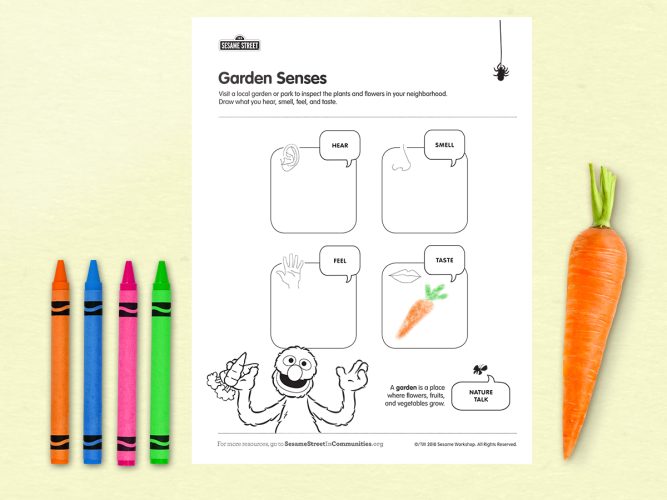
Garden Senses
Screen-time can help families learn and connect, and taking screen-time breaks can, too.
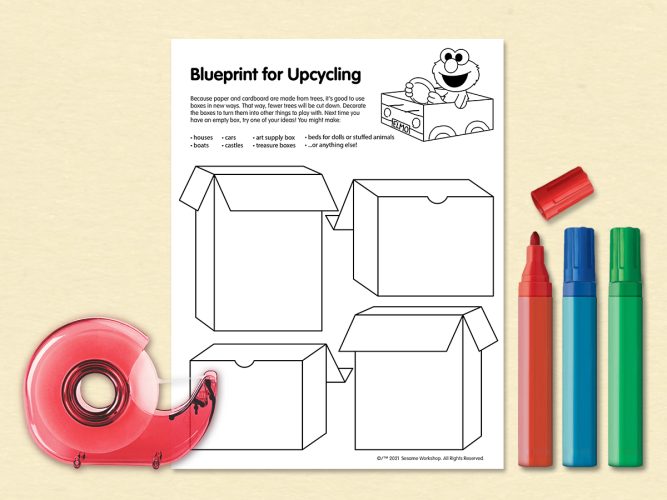
Blueprint for Upcycling
An activity page about upcycling.
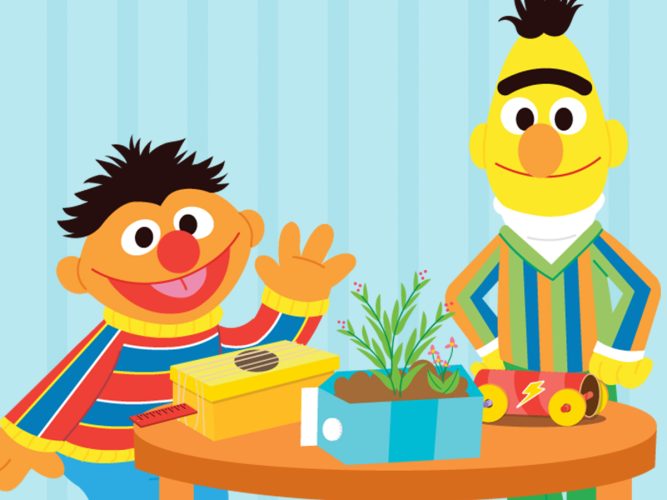
Bert & Ernie Reuse & Reinvent!
An interactive game about upcycling.
